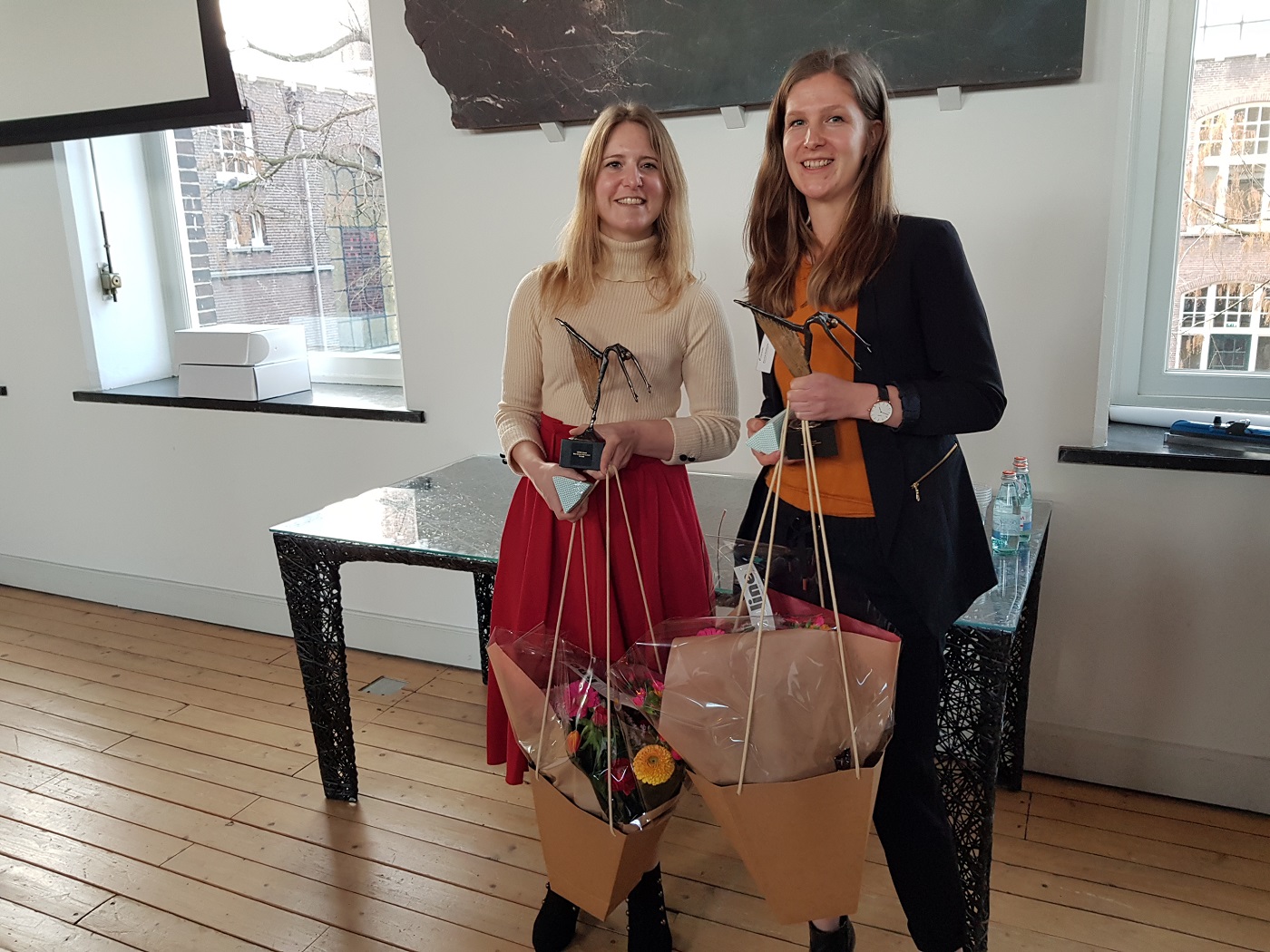Dewis, TU Delft’s women’s network, nominated Aimée Sakes and Jorine Eeftens as the best female PhD candidates at TU Delft in 2018. They received the Dewis Award on Monday.
The two winners of the Dewis Awards: Aimée Sakes (left) and Jorine Eeften . (Photo: Connie van Uffelen)
The jury said that they are exceptional, write good publications and graduated within four years with honours. These qualities were shared by all four nominees: Marina Bos-de Vos (Architecture), Jorine Eeftens (Applied Sciences), Eline van der Kruk and Aimée Sakes (both 3mE). What made Sakes and Eeftens stand out in the mind of the jury, were their way of teaching, grants and fellowships received, and their societal impact.
Given both their qualities, Dewis (Delft Women in Science) awarded two Dewis Awards this year instead of one. Sakes received hers for her research into flexible, hydraulic catheters for treating heart diseases for which she drew her inspiration from mechanisms in nature. Eeftens won hers for her research into disentanglement and compaction of DNA in cells. .
Symposium
The winners were awarded their Dewis Award statue at Dewis’ packed annual symposium in the Science Centre. The theme of the symposium was ‘Diversity, creativity and innovation’. Professor Roni Reiter-Palmon of the University of Nebraska talked to the audience about leading diverse and inclusive teams. She believes that these teams have more diverse information and knowledge, but that it can be a challenge to communicate and trust each other.
She believes that leaders of teams where the people are so different from each other need to create an atmosphere in which people dare speak out. Communication is important for greater creativity, she said, and that takes time and good leadership. “Leaders can make the difference by having their teams reflect and evaluate once in a while,” she asserts. The teams can then change strategy and learn from their mistakes. She believes that this makes teams more innovative and creative.
Loss of talent
The next speaker was Dr Caroline Dessent of York University who talked about the big difference between the percentage of male (91% in 2014) and female (9%) professors of chemistry in the United Kingdom. “At every step in their career after earning their master’s, we lose 10% of women. This is the loss of a lot of talent.”
Her department is trying to do something about this by adopting more family-friendly policies that are not only targeted at women. “Every staff member must be able to work part-time with the guarantee to work full-time again at some point, if they wish to do so. The outcome is that more women and men started to work part-time as they saw that this benefited women.”
Working four days a week
In her eyes, Dessent’s department promotes people on quality instead of quantity. Post docs receive extra coaching and staff have a lot of time for training on equality and diversity. “This does need more money and personnel though. And it needs managers who believe in it.” In answer to a question from the audience, Dessent replied that she believes a four-day working week to be the minimum. “But you should be able to work three days a week during certain periods such as after maternity leave.”
Do you have a question or comment about this article?
c.j.c.vanuffelen@tudelft.nl


Comments are closed.